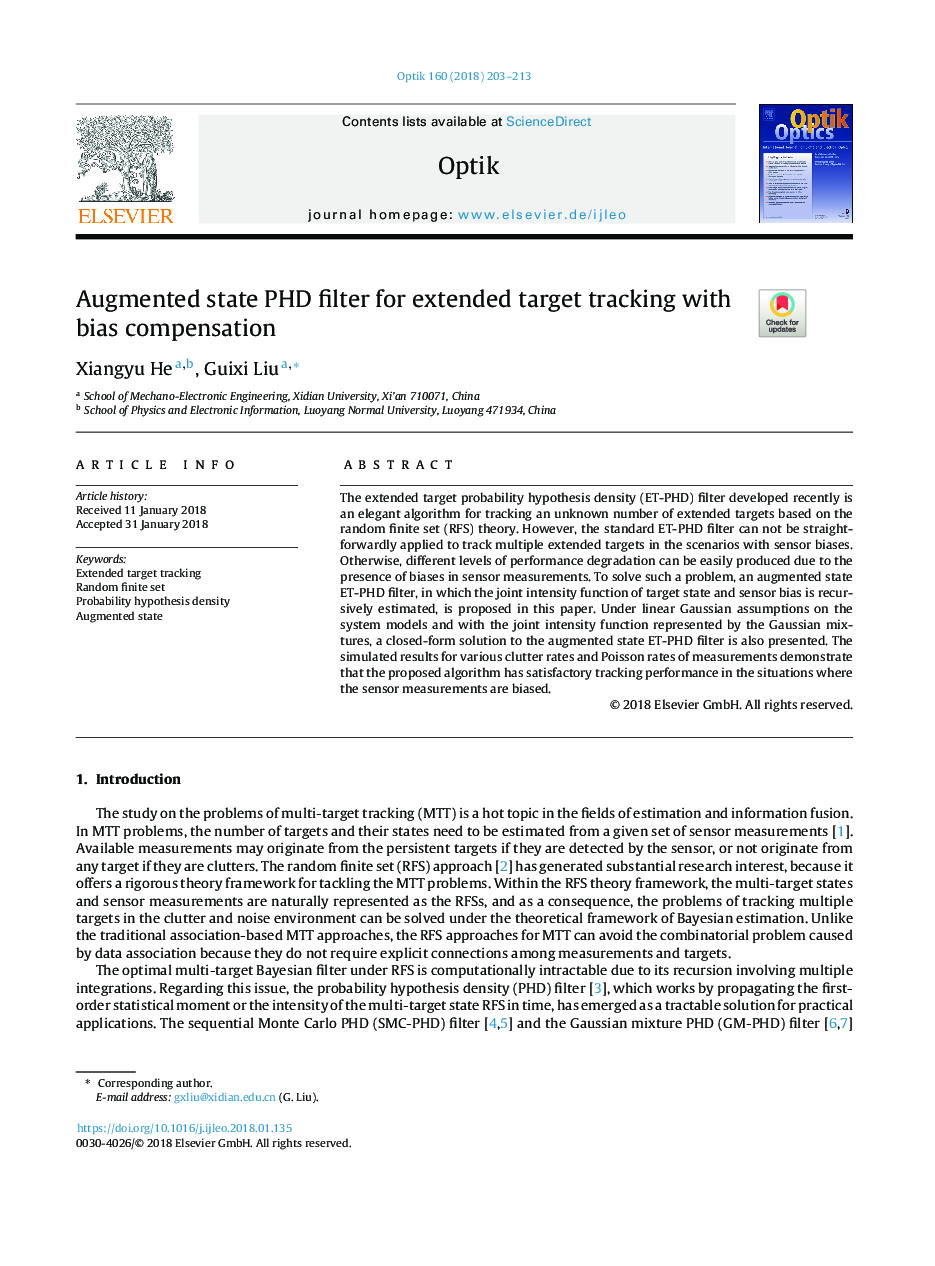| Article ID | Journal | Published Year | Pages | File Type |
|---|---|---|---|---|
| 7224181 | Optik - International Journal for Light and Electron Optics | 2018 | 11 Pages |
Abstract
The extended target probability hypothesis density (ET-PHD) filter developed recently is an elegant algorithm for tracking an unknown number of extended targets based on the random finite set (RFS) theory. However, the standard ET-PHD filter can not be straightforwardly applied to track multiple extended targets in the scenarios with sensor biases. Otherwise, different levels of performance degradation can be easily produced due to the presence of biases in sensor measurements. To solve such a problem, an augmented state ET-PHD filter, in which the joint intensity function of target state and sensor bias is recursively estimated, is proposed in this paper. Under linear Gaussian assumptions on the system models and with the joint intensity function represented by the Gaussian mixtures, a closed-form solution to the augmented state ET-PHD filter is also presented. The simulated results for various clutter rates and Poisson rates of measurements demonstrate that the proposed algorithm has satisfactory tracking performance in the situations where the sensor measurements are biased.
Related Topics
Physical Sciences and Engineering
Engineering
Engineering (General)
Authors
Xiangyu He, Guixi Liu,
